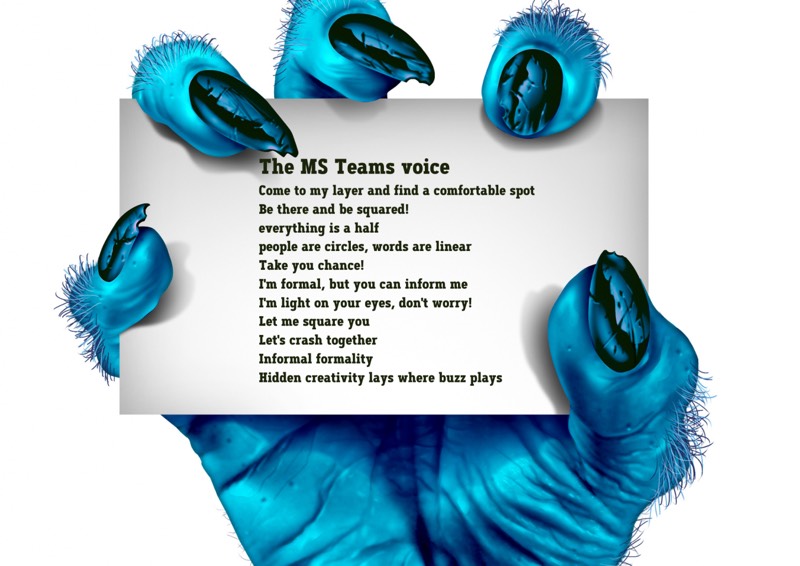The Daimons’ Game: A Workshop by the Communications Department
The JCU Department of Communications organized an online workshop called “The Daimons’ Game” on March 19, 2021, as part of the Digital Delights & Disturbances event series. The workshop was hosted by Carlo Milani Bertocchi and Agnese Trocchi of the International Research Centre for Electric Convivialities (C.I.R.C.E.), a collective that produces educational materials and organizes “hacker pedagogy” workshops, which aim at training participants to have a deeper understanding of digital tools through an analysis of online platforms.
With the COVID-19 pandemic and daily activities suddenly shifting online, most people have had very little time to critically reflect on digital tools and platforms. For this reason, the C.I.R.C.E. collective gathered examples of distance learning experiences from teachers, students, and others involved in this practice, in an attempt to reflect on the most common digital technologies and platforms. The main issues that emerged were the digital divide, the change in teaching methodologies and the freedom to teach and learn as one sees fit, and the question of privacy and data management.
Regarding the freedom to teach and learn, the speakers explained that each online platform is designed in a specific way, with its own affordances and constraints. Moreover, each platform reproduces the culture of its creators, has its own limitations and intrinsic characteristics and exercises a “gentle nudge.” Nudges are small changes in environment that are easy and inexpensive to implement.
The nudge concept “proposes positive reinforcement and indirect suggestions as ways to influence the behavior and decision making of groups or individuals.” The idea was popularized by the book Nudge: Improving Decisions about Health, Wealth, and Happiness (Yale University Press, 2008) by economist Richard H. Thaler and Harvard Law School Professor Cass R. Sunstein. The book draws on research on psychology and behavioral economics to defend the idea that it is both possible and legitimate for private and public institutions to orient behavior and engineer choices.
The term nudge and the principles associated with it were influenced by mathematician Norbert Wiener (1894-1964), who is considered the originator of cybernetics, by behavioral economist Daniel Kahneman, and by cognitive and mathematical psychologist Amos Tversky (1937-1996). Wiener defined cybernetics in 1948 as “the scientific study of control and communication in animals and machines.” Behavioral economics challenges the assumption that human rationality prevails and argues that humans’ actions are motivated by a number of cognitive biases, such as “anchoring,” or the tendency to rely too heavily on the first piece of information offered (the anchor) when making a decision. Another cognitive bias is the group bias, or people’s tendency to agree with the ones who belong to their same social group.
The C.I.R.C.E. collective “believes that every software has a daemon, or a hidden will that can’t be seen but with which users must always dialogue. It is a little spirit that gives gentle nudges.” In order to have a glimpse of the daimon of Microsoft Teams, the platform where the workshop took place, the participants were invited to analyze it and write down on a shared document some details, such as colors, shapes, or anything else that they noticed. Then, they were asked to turn the most important details into slogans, which were used to create a poem that “revealed the voice of the daimon.”
The Microsoft Teams daimon’s voice
Come to my layer and find a comfortable spot.
Be there and be squared!
Everything is a half.
People are circles words are linear.
Take your chance!
I’m formal, but you can inform me.
I’m light on your eyes, don’t worry!
Let me square you.
Let’s crash together.
Informal formality.
Hidden creativity lays where buzz plays.
The workshop ended by concluding that if there’s a part of us in tune with the nature of the daimon, it will try to bring it out. If, on the other hand, our inclinations are different from the nature of the daimon, they will either be balanced or make us feel uncomfortable. Users, as hackers, have the power to change the rules and add new elements that resolve the conflicts with the daimon. We can transform the device, find our way, and imagine our procedure, such as deciding whether or not to use the camera or whether we would rather speak or type.






